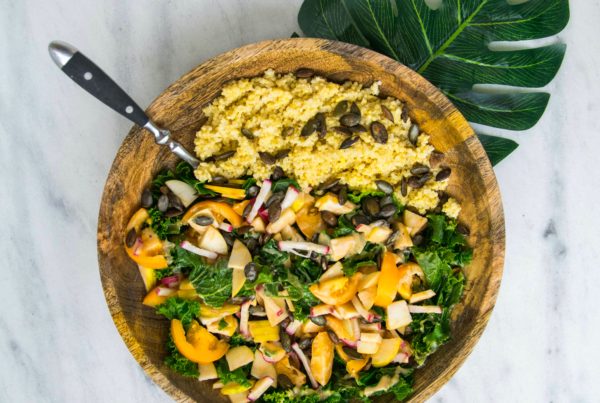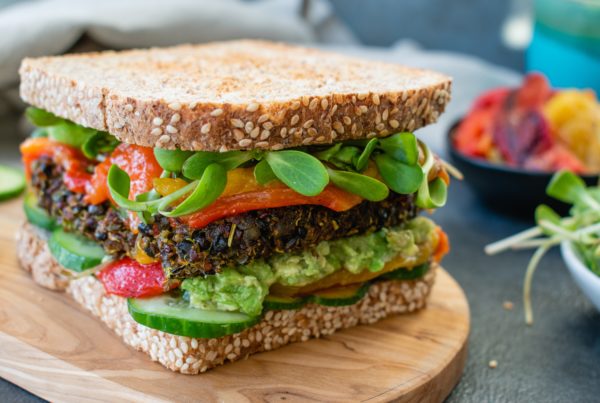Skin is your body’s largest organ, making up around 16% of your total body weight. Its functions are exceptional and include the protection of the underlying tissues and organs from chemical attack and abrasion, synthesis of Vitamin D essential for normal calcium metabolism, production of melanin to protect you from UV radiation, and many more. Having healthy skin means having the most powerful first-line defender from a hostile environment. And today we will talk about the food and lifestyle changes that will help you maintain healthy, youthful, and glowing skin.
Tip #1: Stay Hydrated
Your skin cannot function properly without an adequate amount of water. Remember our article on the importance of water for maintaining normal body temperature? This is one of the main functions of your skin – to regulate body temperature by evaporative cooling or insulation. Lack of good hydration may lead to serious interruptions in these processes.
Tip #2: Eat a Variety of Foods
Food is the best source of vitamins and minerals vital for optimal skin function. The most important nutrients for skin health are fat-soluble vitamins A, D, and E, water-soluble vitamins Riboflavin, Niacin, B6, and C, and minerals such as Zinc and Selenium. As we discussed earlier, vitamins A, E, and C are considered to be antioxidants and are capable of protecting your skin from cellular damage caused by free radicals that are generated as a result of both normal body processes and environmental factors such as smoking or sun exposure. Selenium, zinc, and other antioxidants such as anthocyanins found in vegetables and fruits also defend your body against oxidative damage. The best approach for meeting the recommended amounts of these vitamins and minerals is to follow Canada’s Food Guide as it will give you an opportunity to eat a healthy and delicious diet full of fruits and vegetables alongside protein, carbohydrate, and healthy fat foods.
Tip #3: Cut Down on Supplements
Research shows that eating a varied and balanced diet is the best way to get essential nutrients for healthy skin. Overconsumption of certain nutrients obtained from supplements will not provide you with more benefits and can be toxic to your body. Just look at this list and you will discover that the most common foods are packed with essential nutrients responsible for the normal function and health of your skin:
| Vitamin/Mineral | Recommended Dietary Allowance (RDA) | Amount from Common Foods |
| Vitamin A | Males: 900 mcg/day
Females: 700 mcg/day |
1 medium baked sweet potato without skin: 1096 mcg RAE
1 medium raw carrot: 509 mcg RAE 155 g of pumpkin pie: 660 mcg RAE |
| Vitamin E | Adults: 15mg/day | 60 ml of sunflower seeds: 8.5 mg
60 ml of almonds: 7.7 mg 2 tbsp of peanut butter: 2.2 mg |
| Vitamin D | Adults: 600 IU/day | 75 g of canned sardines: 70 IU
125 ml of yogurt fortified with Vitamin D: 34 IU 250 ml of orange juice fortified with Vitamin D: 19 IU |
| Riboflavin | Males:.3 mg/day
Females: 1.1 mg/day |
75 g of cooked beef liver: 2.6 mg
250 ml of whole milk: 0.4 mg 125 ml of yogurt: 0.2 mg |
| Niacin | Males:16 mg/day
Females: 14 mg/day |
75 g of cooked chicken: 7 mg
100 g of cooked pasta: 1.8 mg 30 g of pumpkin seeds: 1.2 mg |
| Vitamin B6 | Adults: 1.3 mg/day | 100 g of all bran cereal: 0.8 mg
1 large banana: 0.5 mg 90 g of tuna: 0.4 mg |
| Vitamin C | Males: 90 mg/day
Females: 75 mg/day |
1 medium red sweet pepper: 152 mg
1 medium kiwi fruit: 64 mg 4 sprouts of cooked Brussels: 52 mg |
| Zinc | Males: 11 mg/day
Females: 8 mg/day |
75 mg of ground cooked lamb: 3.5 mg
100 g of cooked lentils: 1.3 mg 75 g of cooked chicken: 0.7 mg |
| Selenium | Adults: 55 mcg/day | 75 g of cooked shrimp: 37 mcg
75 g of cooked cod: 28 mcg 1 large, cooked egg: 17 mcg |
The only difficult nutrient to get from food is Vitamin D. According to Osteoporosis Canada, it is recommended to get this vitamin through supplementation. In addition, if you feel that you cannot receive some nutrients discussed above from food, you should speak to a dietitian or physician before taking any vitamin or mineral supplements.
Tip #4: Protect Your Skin from the Sun
According to the American and Canadian Cancer Societies, UV rays can result in sunburn, premature aging of the skin, wrinkles or actinic keratosis, and, more importantly, in skin cancer. UV radiation can easily damage elastin and collagen found in your skin, which is why it is particularly important to avoid overexposure to the sun. When outside, always protect your skin from sunburn by using sunscreen, staying in the shade, and wearing a hat and clothing that covers your body.
Tip #5: Limit Your Alcohol Intake
Not only does alcohol damage your liver and negatively impact your cardiovascular health, but it also dehydrates your skin leading to severe disruption in your skin’s function. Remember that alcohol is toxic to your body. If you drink, drink in moderation with enough water intake. If you do not drink alcohol, never start.
Reviewed by Annie Tsang, RD
References
Diaconeasa, Z., Ştirbu, I., Xiao, J., Leopold, N., Ayvaz, Z., Danciu, C., Ayvaz, H., Stănilă, A., Nistor, M., & Socaciu, C. (2020). Anthocyanins, vibrant color pigments, and their role in skin cancer prevention. In Biomedicines (Vol. 8, Issue 9). https://doi.org/10.3390/BIOMEDICINES8090336
Gromkowska-Kępka, K. J., Puścion-Jakubik, A., Markiewicz-Żukowska, R., & Socha, K. (2021). The impact of ultraviolet radiation on skin photoaging — review of in vitro studies. In Journal of Cosmetic Dermatology (Vol. 20, Issue 11). https://doi.org/10.1111/jocd.14033
Hobson, R. M., & Maughan, R. J. (2010). Hydration status and the diuretic action of a small dose of alcohol. Alcohol and Alcoholism, 45(4). https://doi.org/10.1093/alcalc/agq029
Martini, F. H., Ober, W. C., Nath, J. L., Bartholomew, E. F., & Petti, K. (2019). Visual Anatomy and Physiology (3rd Edition). Pearson Education Inc.
Park, K. (2015). Role of micronutrients in skin health and function. In Biomolecules and Therapeutics (Vol. 23, Issue 3). https://doi.org/10.4062/biomolther.2015.003
The Association of UK Dietitians. (n.d.). Skin health: Food Fact Sheet. https://www.bda.uk.com/resource/skin-health.html
Whitney, E., Rolfes, S. R., Hammond, G., & Piche, L. A. (2016). Understanding Nutrition (2nd Canadian Edition). Lenore Taylor-Atkins.



